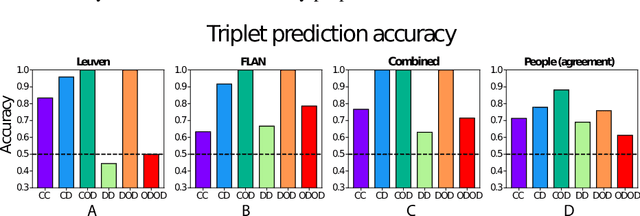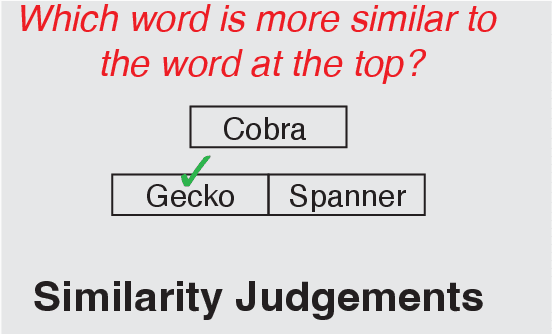Semantic Feature Verification in FLAN-T5
Paper and Code
Apr 12, 2023



This study evaluates the potential of a large language model for aiding in generation of semantic feature norms - a critical tool for evaluating conceptual structure in cognitive science. Building from an existing human-generated dataset, we show that machine-verified norms capture aspects of conceptual structure beyond what is expressed in human norms alone, and better explain human judgments of semantic similarity amongst items that are distally related. The results suggest that LLMs can greatly enhance traditional methods of semantic feature norm verification, with implications for our understanding of conceptual representation in humans and machines.
* To appear as a Tiny Paper at ICLR 2023
View paper on
 OpenReview
OpenReview
 Add to Chrome
Add to Chrome Add to Firefox
Add to Firefox Add to Edge
Add to Edge